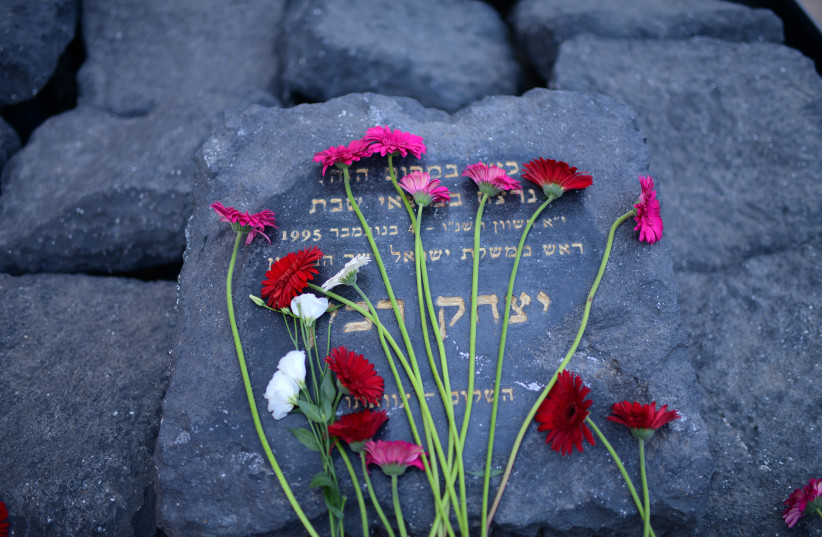These are not normal times.
My oldest son just called to say he had been called up for reserve duty. My youngest daughter, living on the northern border, was heading to safer Jerusalem with her family. And my five-year-old granddaughter, who should have been back at her kindergarten after two weeks of holidays, was home, and only semi-aware of why she had been in a bomb shelter the day before.
Many observers have stated how the horrendous weekend invasion by Hamas that scorched the country’s South with carnage is akin to Israel’s 9-11. How nothing will ever be the same.
That’s certainly spot-on, but the closest parallel I can find in the emotional impact of the cataclysmic changes to the life landscape in Israel is the assassination of prime minister Yitzhak Rabin in 1995.
That’s probably because, for both tragedies, I was working at The Jerusalem Post as night editor.

Both were Saturday night shifts, full of tense, breathless decision-making, edits, headline writing, design deliberations, and production, all conducted like sprinting throughout a marathon.
One of the necessary traits required of journalists is to be able to set aside personal feelings and get the job done, like an automaton. On the night of the Rabin assassination, it wasn’t only necessary; it was a coping mechanism for survival and prevention of total collapse.
Only after the paper went to bed, did the deep breathing begin and the tears start to flow. The following morning, waking from what seemed to be a bad dream but was instead a harrowing reality, the pervading feeling was hopelessness and helplessness.
There didn’t seem to be any way back from the deep, dark hole we had fallen into. I lay in bed and put the cover over my head, wanting it all to stop. But there was another paper to put out. So I went to work and did the whole thing over again.
Fast forward 28 years later
Fast forward almost 28 years later, and the exact same sense of despair returned. Saturday night’s shift was another breathless marathon, as a small group of dedicated individuals attempted to create a cohesive narrative of the dozens of moving pieces that made up the unbelievable events that began that morning at 6:30 a.m., all within the drastic deadline constraints.
As I was perusing our photo services, looking for the visuals to accompany the stories, the graphic images on the Reuters feed were like a car crash that one couldn’t avoid staring at: the lifeless, bloodied bodies of Israelis slumped in the cars who had been gunned down on the road by Hamas terrorists, and the shots of other victims thrown on to trucks like cattle and brought back to Gaza.
It was sickening – and there was no way they would get into the paper. But those photos brought into focus the enormity of the events that had unfolded.
And again, when the last page was finally sent to print late at night, there was deep breathing. But there were no tears this time, just emptiness, and thoughts of the dozens of Israelis captured and forced into Gaza, and what their families must be going through.
The tears only came the next morning, when driving on the usually packed but this day’s nearly deserted Road 1 in Jerusalem, Reshet Bet’s morning show broke into announcer Alon Velan stoically reciting the names and homes of the 26 young soldiers killed on the first day of the war. Most were 20 or 19, and only at the beginning of their life’s journey, and it was too much to bear.
I didn’t want to go to work, I wanted to crawl back under the covers like after Rabin’s assassination and hide. But here I am, typing away. Because, what else is there to do, really?
These are not normal times, and those times won’t likely return for a long time – and if they do, like after the Rabin assassination, it will be a new normal.
Back in 1995, I lost my innocence. This weekend, I lost something much more, I’m just not sure what it is.
Contrary to the bluster of Prime Minister Benjamin Netanyahu and Defense Minister Yoav Gallant boasting that Israel will emerge victorious and that Hamas has opened the gates of hell, I don’t feel their burning desire for vengeance.
I just want to sit quietly somewhere, and not think about any of this for a long while.
